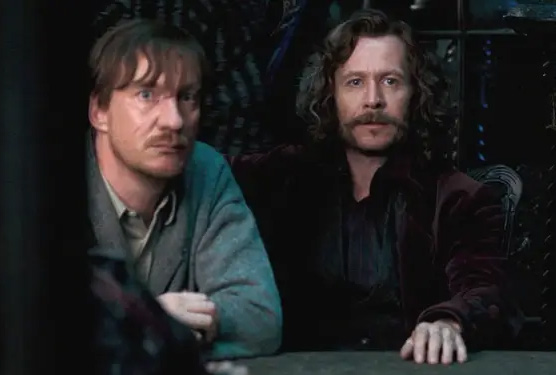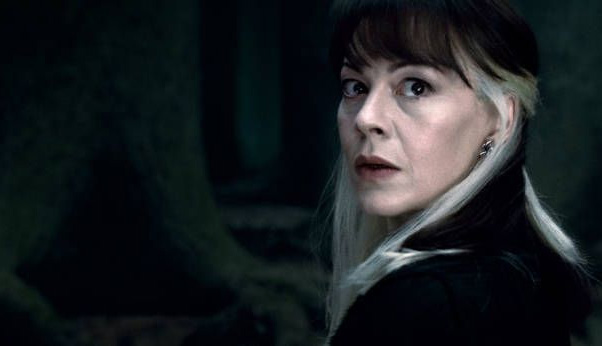Generally, the Harry Potter narrative is centred on dark nuances with regards to the portrayal of witchcraft and wizardry. However, upon close inspection one discovers an avalanche of stirring, inspiring and spiritual elements that leaves one yearning to weave these Godly themes into their own evolving souls.
I am reminded of a period in College where our Television Studio lecturer tasked us to write a film review on any of our favourite films. I instinctively picked Harry Potter and the Order of the Phoenix because (coincidentally) I had just purchased a DVD from our local book and video games store. ‘Imaginative’ was the key word that I chose to describe J.K Rowling’s storytelling, because I was (still am) in awe at how she skilfully curated the story.
Below are a few nuggets regarding the manner in which different themes spiral throughout the story.
LOVE
“And now these three remain: faith, hope and love. But the greatest of these is love.”
– 1 Corinthians 13; 13.
We are introduced to a rare and poignant display of pure love through Professor Albus Dumbledore and Professor Minerva McGonagall in Harry Potter and the Philosopher’s Stone.

The two are seen walking down Privet Drive, while the former is cradling an infant Harry Potter in his arms.
At first glance, the audience is oblivious to the two characters on screen however as the story unfolds, we learn that they are not even a tinge related to the Potter’s. At this point, one’s curiosity is sparked, as to “why would strangers’, nurture an infant?”
This scene in particular strikes a chord, because it illustrates that blood isn’t always thicker than water. The ‘water’ in this instance is the two Professors, who continued to love, support and nurture Harry Potter beyond his infant years.
This is one of the purest forms of love.
WHO ARE YOU?
“It is our choices, Harry, that show what we truly are, far more than our abilities.”
– Professor Albus Dumbledore, Harry Potter and the Chamber of Secrets.
Free will is of paramount importance to the human race. The following scene rings true to this notion. In The Philosopher’s Stone, we are introduced to the Sorting Hat; a shabby looking elf hat that places new students into their respective houses. While other students simply accepted their designated houses, the young Harry resisted being housed in the infamous Slytherin. He therefore pleaded with the Sorting Hat to be placed in the popular Gryffindor.

Gryffindor’s most defining qualities are bravery and chivalry; these characteristics must have aligned with Harry’s true nature. Although the Sorting Hat maintained that the young Harry does, in fact, possess the qualities of a typical Slytherin, he eventually placed him in Gryffindor because he asked not to go in Slytherin.
The Order of the Phoenix also presented another hair-raising moment between Harry Potter and his Godfather, Sirius Black. The two are seen at the House of Black basement, when a confused Harry mentions to Sirius that he experiences varying degrees of concern pertaining to his real personality. And then Sirius responded: “the world isn’t split into good people and Death Eaters. We’ve all got both light and dark inside of us. What matters is the part we choose to act on. That’s who we really are.’’
THE ULTIMATE SACRIFICE
‘’Always’’
– Professor Severus Snape, Harry Potter and the Deathly Hallows.
Professor Severus Snape’s overall storyline is a personal favourite of mine. Although J.K Rowling weaved the storylines exceptionally well, this one remains the Mecca of character writing in the entire Harry Potter series.

The fog cleared in The Deathly Hallows after realising that Snape truly was the hidden hero all along. The manner in which he cleverly deceived Voldemort whilst “putting his life in mortal danger’’ for Harry and Professor Dumbledore is highly commendable.
After learning of Professor Snape’s intricate yet deeply inspiring life story, one is left thirsting to emulate such great ability at sacrifice oneself to the benefit of the other/s. Bravo!
Russian theatre practitioner Konstantin Stanislavski once said: “There are no small parts, only small actors”. This sentiment alludes to Narcissa Malfoy’s pint sized role in The Deathly Hallows – Part 2. Although she hardly enjoyed screen time, her performance remains riveting and unforgettable.
After many failed attempts at killing Harry Potter, Voldemort finally believed he had achieved this when the Malfoy matriarch declared him “dead” as he lay heavily injured on the ground. This dangerous yet brave move by Narcissa is noteworthy because like Professor Snape, she risked her life as Voldemort would have likely persecuted her for such a transgression.
The depth of a mother’s love was truly palpable in this scene. The mere fact that Narcissa dare deceive the revered Voldemort to that extent proves how love can be the greatest armour in the face of war
